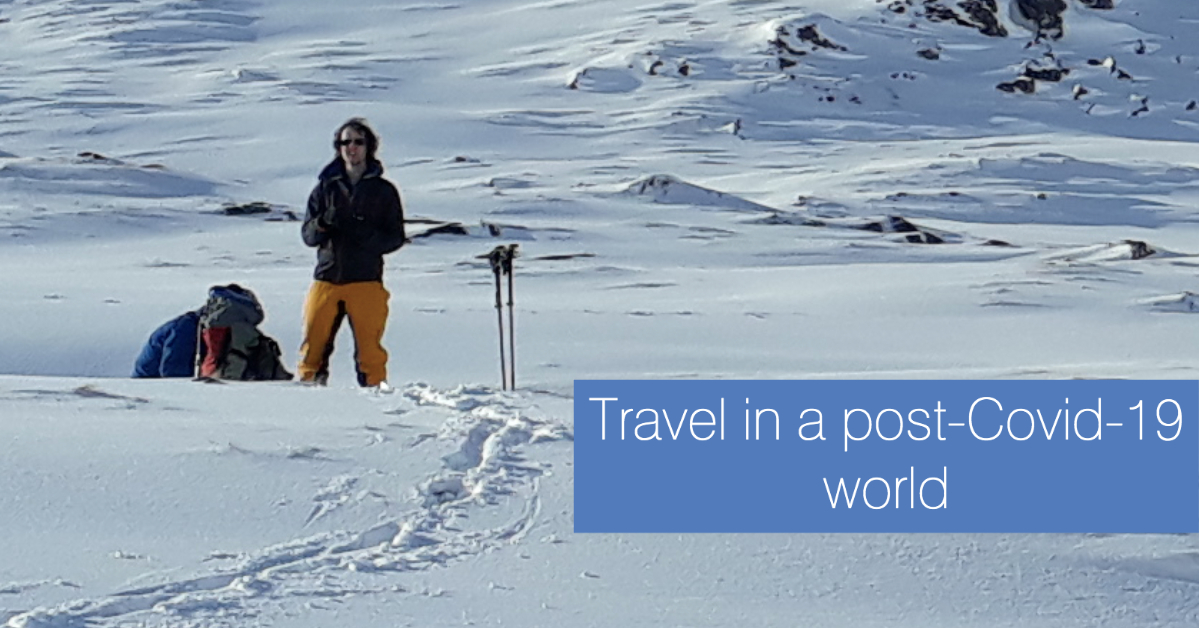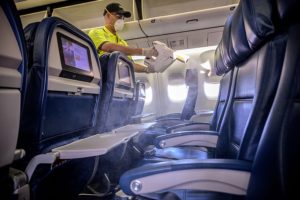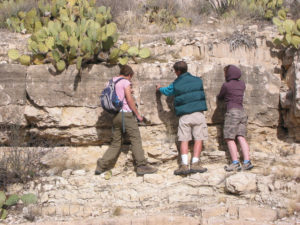Travel in a post-Covid-19 world

Siôn Pickering, Projects Coordinator (Climate Conscious Travel), shares his reflections on how travel has been affected by Covid-19.
We’re not yet in the middle of the year and already 2020 has brought about a lot of change. I’ll not bang on about it, Covid-19 has changed everything.
From a climate point of view, CO2 emissions for 2020 are predicted to drop by 8%. This is no doubt significant but, without wanting to sound too negative on this, a recent report by Carbon Brief shows that, in order to stay below 1.5 degrees as set out in the Paris Agreement, we need the same emissions reduction to take place every year until 2030.
As someone that works in the climate sector I have no intention of celebrating the devastating effects of COVID-19 just because it looks to have reduced our carbon emissions, and have no desire for a Covid-like event to occur annually so that we can achieve the Paris Agreement. The global toll, both through the loss of life, but also in the secondary effects such as increased famine that this pandemic has brought, and will continue to bring in the weeks and months ahead, is devastating.
It also shows we need to work harder. It shouldn’t take a worldwide pandemic to make us sit up and listen. And yet this terrible event may well give us the opportunity to stop, to think, to implement change.
Travel is a big part of our society
Travel opens up opportunities, enlightens us, teaches us about new cultures. But in many ways it also burdens us. Inequality between those that can travel and those that cannot has increased dramatically. An article in the Guardian pointed out that, in 2019, 10% of the UK population took over half of flights, while 48% of the UK population took no flights at all in 2019. The media pushes us to think that we must travel to be happy.
In a work context, travel can be linked to promotion. The jet-setting lifestyle is glamourised. Yet, if you speak to someone that travels frequently for business, you hear familiar stories. High stress, feeling of tiredness or overwhelmed with work, less time with family. Studies have shown that there are increased health risks associated with frequent flying. Our bodies do not get accustomed to jetlag. Exercise levels drop, and intake of unhealthy food and drink increase.

Aircraft Cleaning. CC BY 2.0, Delta News Hub: www.flickr.com/photos/142938205@N05/49656588072
With Covid-19, travel has near enough completely stopped
As of April 2020, 90+% of flights from the UK have been grounded. Locally, public transport provision has also decreased. People are driving far less, and cycling and walking have increased.
This situation is by no means perfect. There are clear frustrations with not being able to travel. To see loved ones or to venture to the great outdoors. And yet what will happen once we are allowed to travel more freely?
Shifts in attitudes to travel post-Covid-19
I‘m not sure that our craving for travel will be as high as it was previously. There will be greater uncertainty about travelling in general, but also it is likely that air travel will become more burdensome. Allowing more time for checks and processes at airports could lead to journey extensions far beyond what is comfortable – especially if required to wait for test results at a destination. What if the country being visited imposes a 14-day quarantine period on all incoming travellers? This would effectively end any chance of a meaningful, enjoyable trip.
It is also likely that, with the possibility of social distancing measures taking place on planes. Costs for tickets will increase. Gone are the days of cheap air travel. Instead ticket prices may start to reflect the true cost of that journey. With the distinct possibility of a deep global recession on the horizon, will expensive holidays be top of the priority list?
Reimagining business travel
When we think about work, is it possible to reimagine what business travel looks like? I’d suggest that working from home (or wherever employees feel able to work from) will become more accepted by organisations, especially as many have had to adapt so rapidly to working remotely. The risk associated with asking employees to travel abroad may be too great, when a video or voice call will complete many of the original objectives.

Geoscience students climbing in the desert on a field trip.
Where travel must still take place, for example to conduct research or to utilise specific equipment, increasing the length of a stay to ensure that full value is gained from that travel. This could lead to fewer trips of longer duration. Not only will these scenarios decrease risks, but it will increase productivity as there will be far less “lost time” from travelling and also has the potential to decrease financial costs for an organisation too. When you look at it that way, it’s surprising not more organisations have decided to cut down on business travel previously.
We are starting to examine this at the University
It’s early days, but we are building in some assumptions based on the current research and thinking. It is mostly about collating questions that we need to answer. Most of these are currently unknown, but having them down on paper means we can build on them as more information comes to light.
It may seem insensitive to talk about these things whilst in the depths of a pandemic. But we shouldn’t wait until it’s over to start these conversations otherwise we risk “reverting to default”. Instead, use this time to understand what might be possible. Test out new systems or procedures to make sure they are fit for purpose. This way, when things get clearer, we can be far more confident in taking those first steps to reducing global carbon emissions from travel.





Recent comments